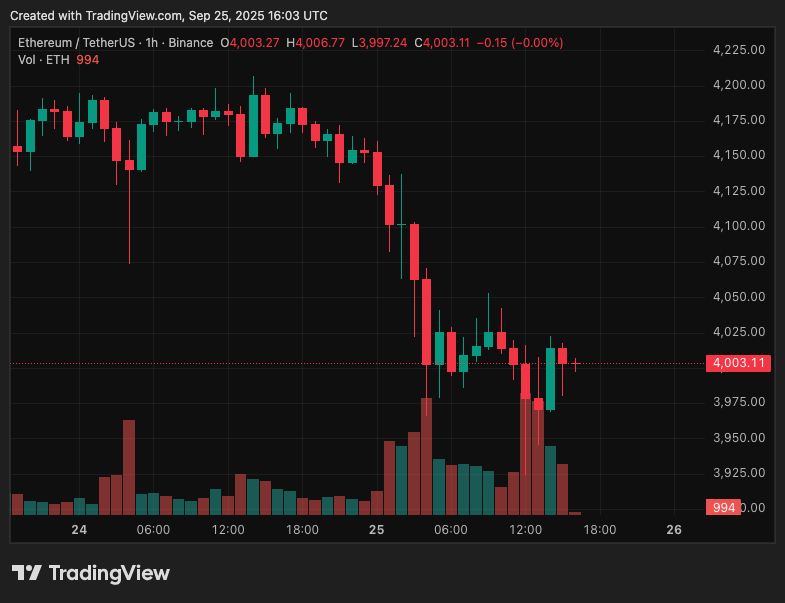Ethereum abrupt descent below the $4,000 threshold on Thursday has reignited market anxieties, pushing the world’s second-largest cryptocurrency officially into bear market territory. The sharp correction—a more than 20% drop from its August peak of $4,850—has unraveled weeks of steady gains and signaled simmering structural frailties beneath the surface of the digital asset market.
Ethereum just tanked below $4,000. Despite all the Ethereum Treasury company buying, the #2 crypto is now in an official bear market, down 20% from its August record high. Bitcoin is next.
— Peter Schiff (@PeterSchiff) September 25, 2025
The latest sell-off intensified as ETH breached $4,150, eventually trading near $3,930. This downdraft erased corporate treasury-driven optimism and left institutional buyers suddenly risk-averse. Market participants now watch closely to see whether Ethereum can find stability above the crucial $3,800 support or if further capitulation is in store.

Peter Schiff, noted investment strategist and long-standing crypto skeptic, was quick to tie Ethereum’s retreat to the broader fate of digital assets. “Ethereum just tanked below $4,000. Despite all the Ethereum Treasury company buying, the #2 crypto is now in an official bear market, down 20% from its August record high. Bitcoin is next,” Schiff posted on social media.
While often seen as cautious—if not contrarian—Schiff’s fresh warning resonates against the backdrop of an increasingly fragile market. Ethereum’s retreat has brought its price action back to early August levels, breaking its bullish momentum and casting doubt on the resilience of the crypto market’s leading lights as Q4 2025 unfolds.
For traders and institutional investors alike, the focus now pivots from rhetoric to technicals, as both Ethereum and Bitcoin face pivotal tests of support in the coming weeks.
Disclaimer: This article is provided for informational purposes only and does not constitute financial advice. Investors should always conduct their own thorough research and consult with a qualified financial advisor before making any investment decisions in cryptocurrencies, which are highly volatile and speculative assets.
You might be interested in:





